Vladimir Putin has been elected President of Russia for the fourth time on 18 March 2018. In this regard, we decided to recall several Armenia-related episodes from Putin’s political activity.
1. When did Putin visit Armenia for the first time?
It happened after the terror act in the Armenian Parliament, which took place on 27 October 1999.
On October 30, Yerevan, Russian Prime Minister Vladimir Putin honored the memory of the victims of the terror act.
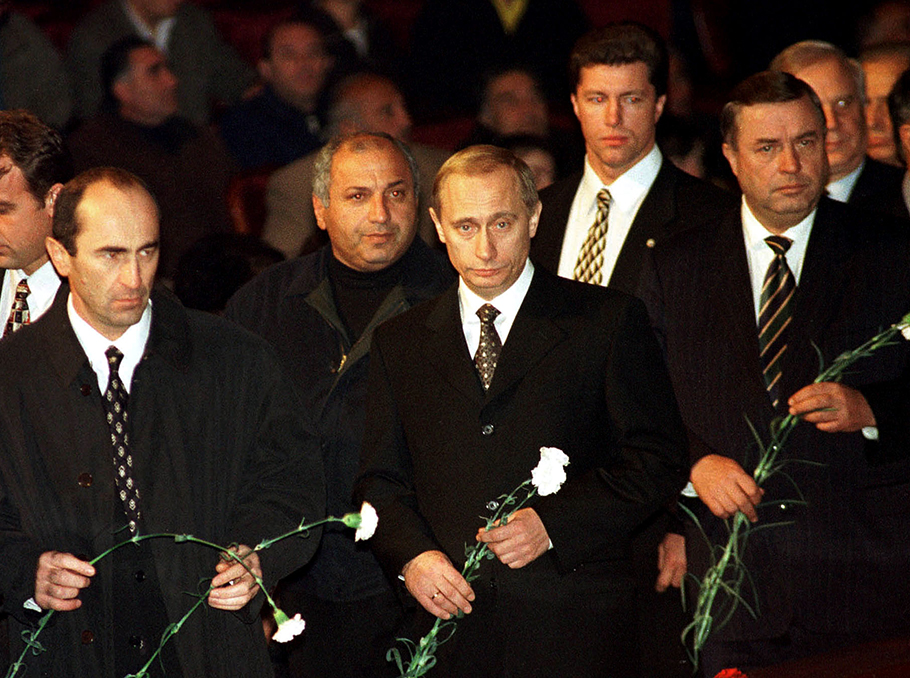 Vladimir Putin in Yerevan on October 30, 1999
Vladimir Putin in Yerevan on October 30, 1999Photo: REUTERS
“I had the honor of meeting with Vazgen Sargsyan in Moscow on October 8. We talked about things that might seem simple, trivial: how to make our relations closer, how to retain what has been uniting Armenia and Russia for centuries. I know Russia has many friends in Armenia, but this loss will be irreparable for us. I hope that the comrades-in-arms of the fallen will lift the banner,” said the head of the Russian government.
2. What did Putin say about the settlement of the Nagorno-Karabakh conflict?
On 26 September 2000, Russian President Vladimir Putin stated after the meeting with Armenian President Robert Kocharyan:
“I don't think Russia has any special rights in the Karabakh conflict settlement. We clearly see the boundaries Russia must not cross in the process of settlement of any conflict, including the Karabakh one. I hear very often that Russia can settle the Karabakh issue immediately if it really wants it. I disagree with such declarations and I consider them a rudiment of imperial thinking.”
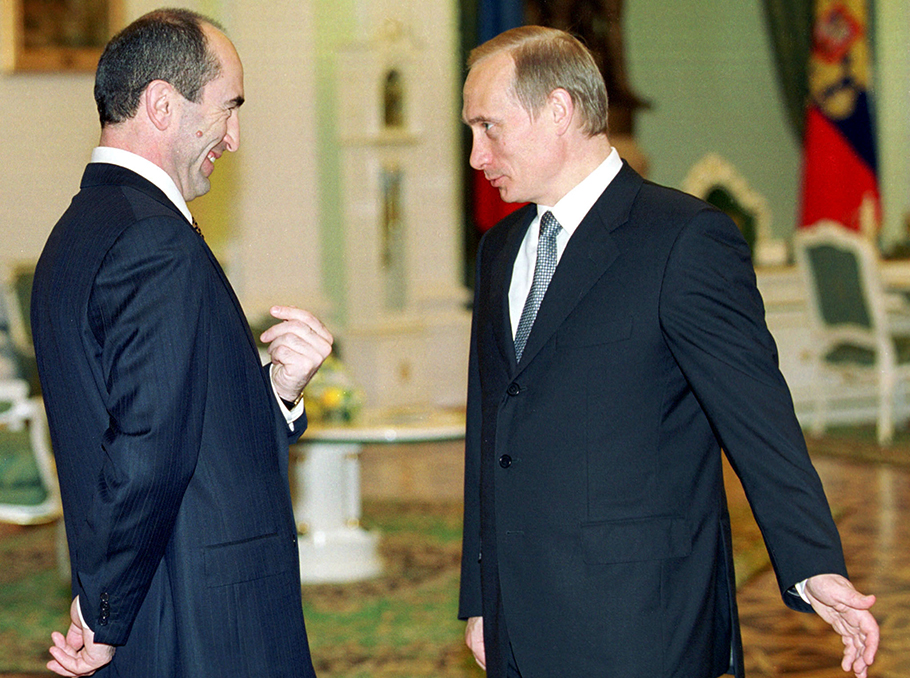 Vladimir Putin and Robert Kocharyan in 2000
Vladimir Putin and Robert Kocharyan in 2000Photo: REUTERS
It is worth noticing that in December 2000, Armenian President Robert Kocharyan stated in the interview to Reuters that “the Armenian society isn’t really enthusiastic about the fact that the President of Russia preferred to visit Baku first and then Yerevan”. The Armenian head of state noted that he had invited Putin to visit Armenia in 2001, and the invitation had been accepted. “Why this particular order of visits has been chosen is a question you should ask the President of Russia,” said Robert Kocharyan.
In May 2001, Vladimir Putin noted that if it weren’t for the consistent efforts of Russia, the other two Co-chairs of the OSCE Minsk Group would hardly had the opportunity to make optimistic statements about the nearest settlement of the Karabakh conflict. At the same time, he clarified that Russia was not going to use “special relations” with Azerbaijan and Armenia to exert any pressure on “both negotiating sides”.
In February 2004, after the talks with President of Azerbaijan Ilham Aliyev, Vladimir Putin said that “Russia is ready to seek the resolution of the conflict, but will not impose anything on either Azerbaijani or Armenian people”.
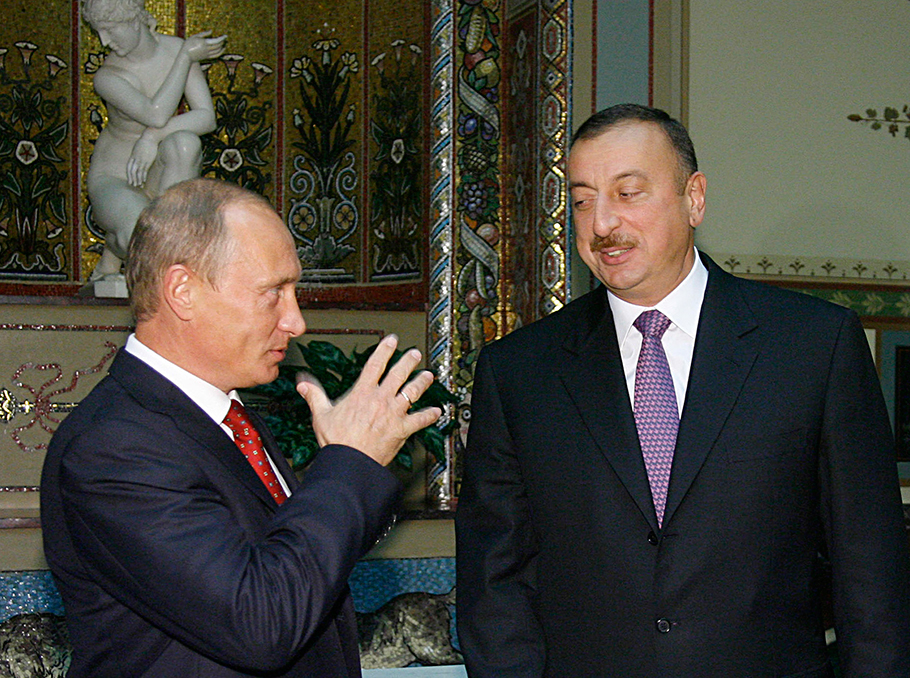 Vladimir Putin and Ilham Aliyev
Vladimir Putin and Ilham AliyevPhoto: REUTERS
He repeated that stance almost word-by-word in August 2016, ahead of his visit to Baku.
“I want to emphasize that we are not trying to force any ready-made recipes onto Azerbaijan and Armenia. The parties should agree between themselves without outside pressure and find mutually acceptable solutions. This is our firm position,” said Putin.
3. How did Putin and Bush indulge in wishful thinking?
On 24 May 2002, the Presidents of Russia and the USA Vladimir Putin and George W. Bush signed a Joint Statement in Moscow, which read in particular that the two states “reject the failed model of the “great powers” rivalry that can only increase the conflict potential in the region of Central Asia and the South Caucasus”.
“We acknowledge our common interest in the assistance to stability, sovereignty and territorial integrity of all the states of the regions of Central Asia and the South Caucasus,” the statement read.
4. What did Saakashvili say about Putin’s approach to Armenia?
While delivering a speech at the UN General Assembly in September 2013, Georgian President Mikhail Saakashvili stated that "Armenia has been cornered and forced to join the Customs Union".
“Our neighboring countries are in constant turmoil, which is exactly what Kremlin is seeking. Russia rejects the very idea of strong government in those countries. Do you believe that Vladimir Putin wants Armenia to defeat Azerbaijan? No. That would make Armenia too strong and potentially independent. Or do you think that Moscow wants the contrary - for Baku to prevail over Yerevan? No, Russia doesn’t want any of the parties to win. The conflict itself is their objective, since it prevents both nations from becoming independent and blocks their integration into the European Common Space," said Mikhail Saakashvili.
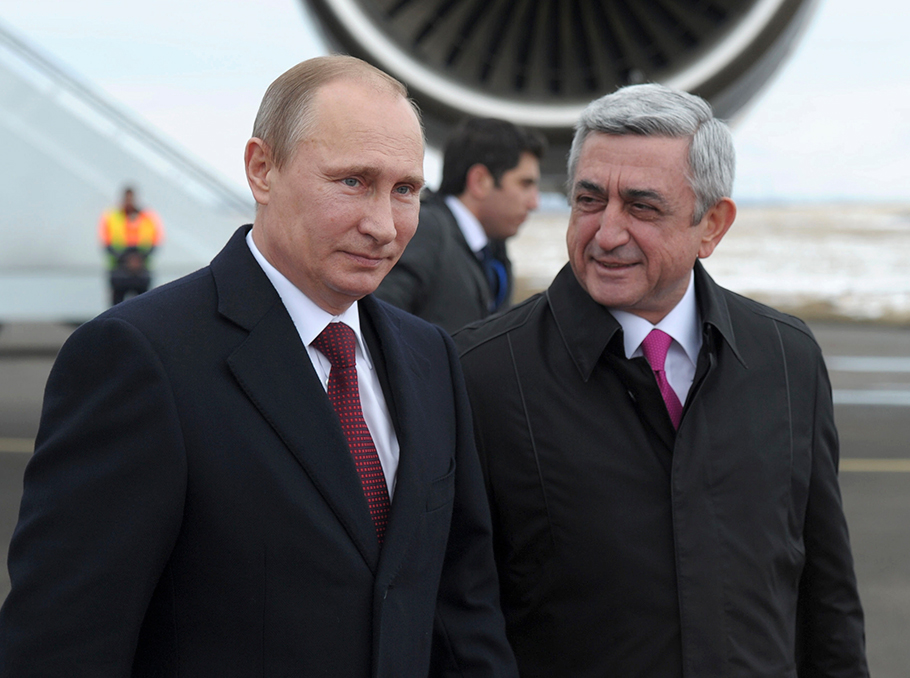 Serzh Sargsyan and Vladimir Putin in Gyumri in 2013
Serzh Sargsyan and Vladimir Putin in Gyumri in 2013Photo: REUTERS
In December 2013, Vladimir Putin delivered a speech at the Armenian-Russian Interregional Forum, during which he noted:
“It (the intent to join the Customs Union - Mediamax) is the sovereign choice of the Armenian people and Armenian leadership. Russia will do its best support this area of cooperation with Armenia.”
5. What did Putin say at the Centennial of the Armenian Genocide?
On 24 April 2015, Russian President Vladimir Putin stated in Yerevan that “the events of 1915 shook the world and were perceived as own tragedy by Russia”.
“We sincerely empathize with the Armenian people, who suffered one of the worst tragedies in the history of humankind. Over a million and a half of civilians were murdered, maimed, and more than 600,000 were exiled and subjected to mass repressions. Many invaluable architectural monuments and holy places were destroyed, ancient books and priceless manuscripts were burned,” said the President of Russia.
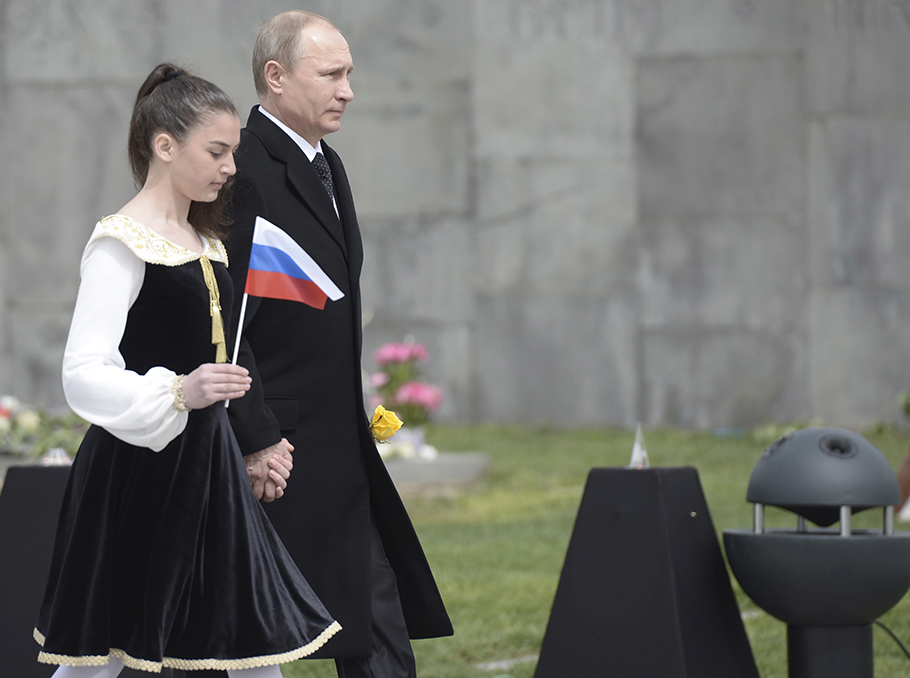 Vladimir Putin in Yerevan on April 24, 2015
Vladimir Putin in Yerevan on April 24, 2015Photo: REUTERS
Many people noticed that Vladimir Putin didn’t call the events of 1915 “genocide” in his speech. It led people to thinking that Russia was trying to soften Turkey’s reaction to the fact that Putin took part in the events dedicated to the Centennial of the Armenian Genocide.
6. How did Putin help an Armenian WWII veteran?
On 27 January 2012, Russian Prime Minister Vladimir Putin provided first aid to 88-year-old Zakhar Khachatryan, a veteran of the World War II.
Putin was holding a meeting with veterans in St. Petersburg, and the elderly participant felt unwell at some point in time.
“The conversation carried on for two hours and the air became stuffy in the room. 88-year-old Zakhar Khachatryan, Distinguished Artist of the Russian Federation, almost fainted. Putin was the first to rush to his aid. The Prime Minister ordered to call a doctor, open the windows and bring some water, and throughout that he supported the pensioner with reassuring words. Prime Minister’s personal physician provided aid to the veteran, so there was no need to take him to hospital. Khachatryan decided to stay at the meeting,” TASS reported.














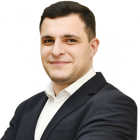

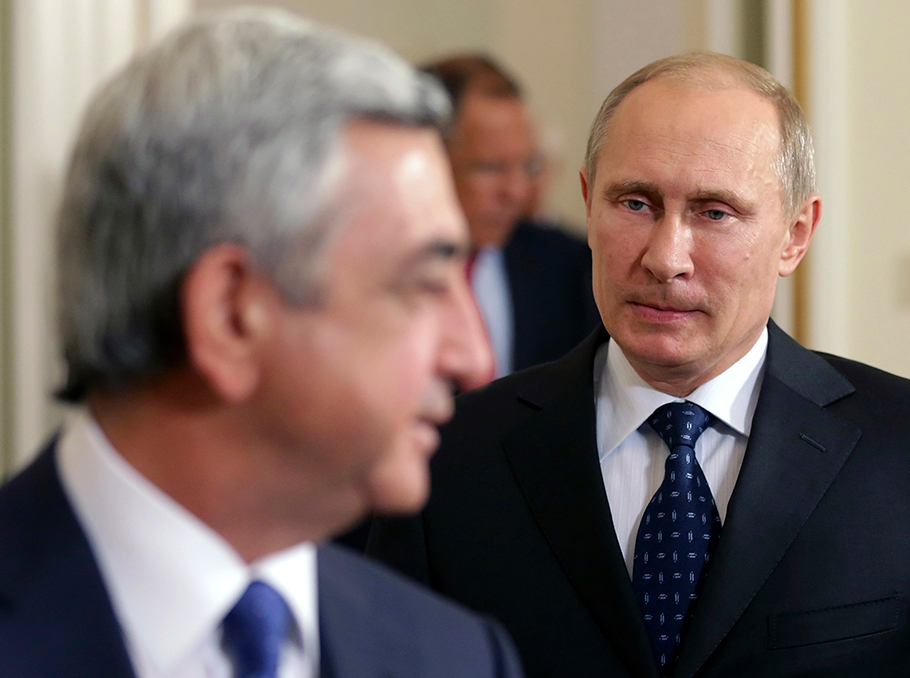

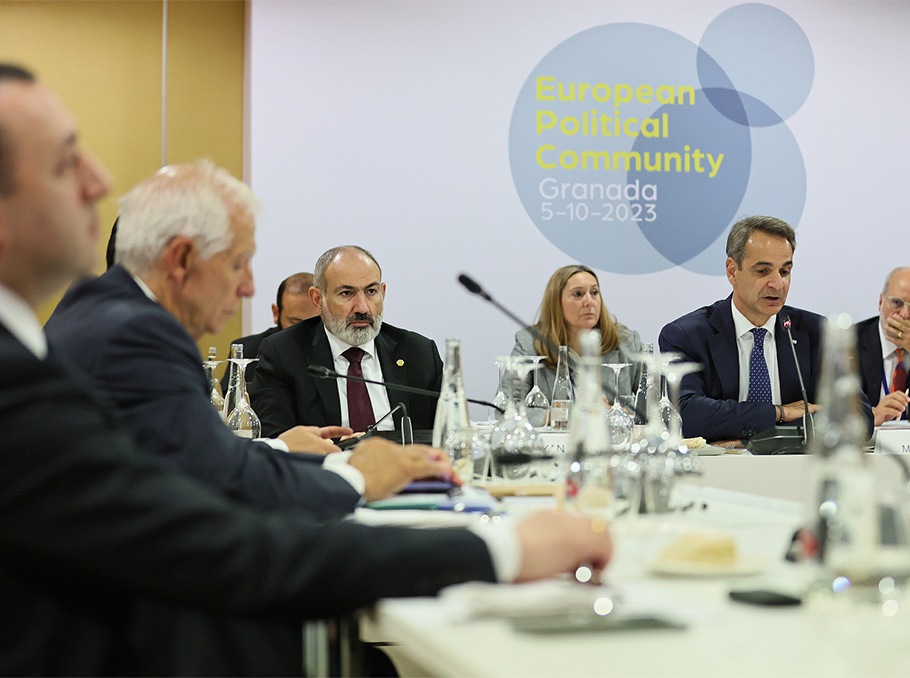
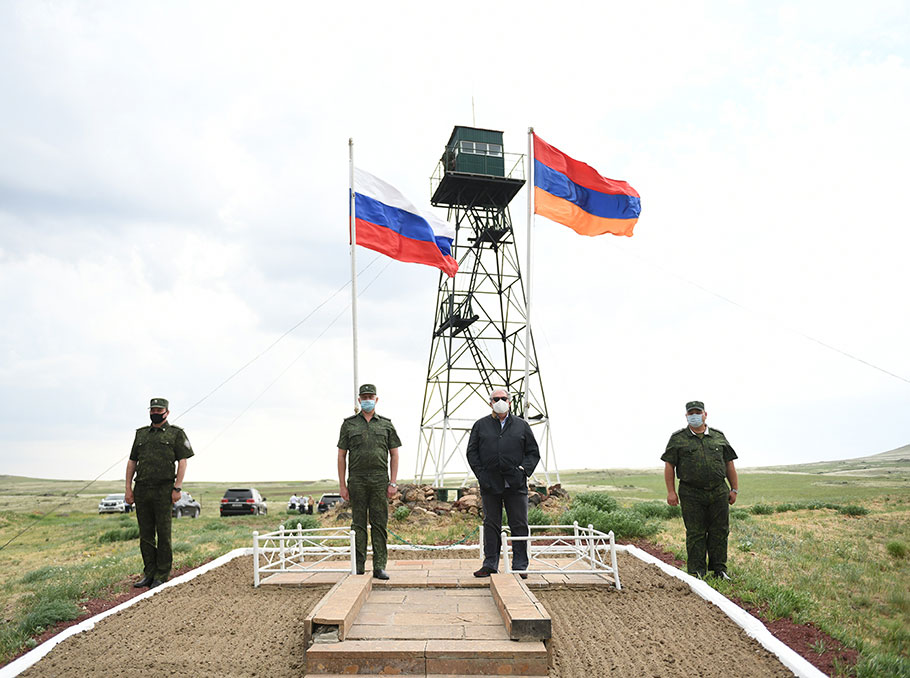
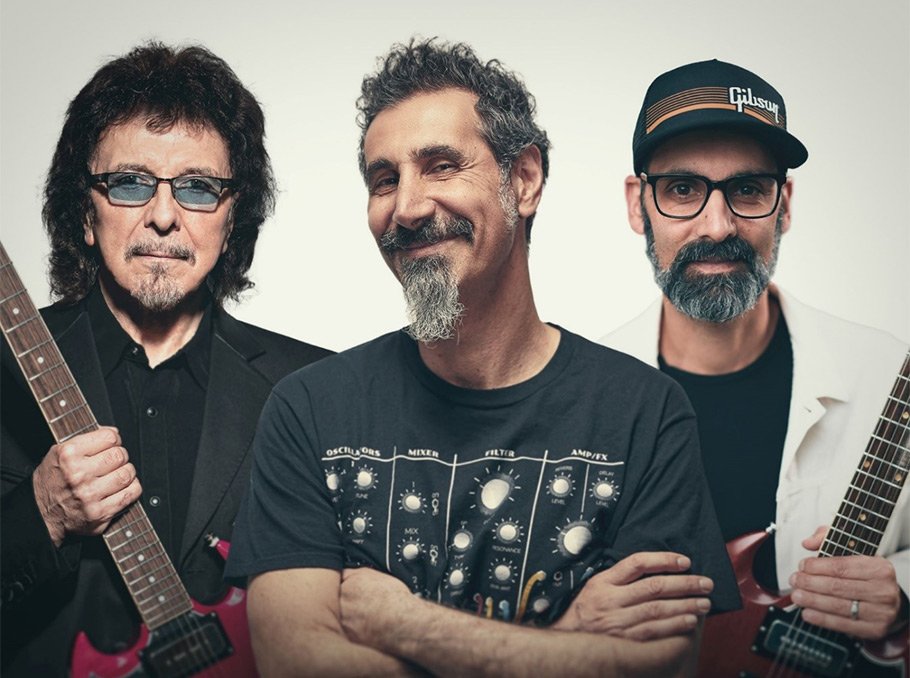
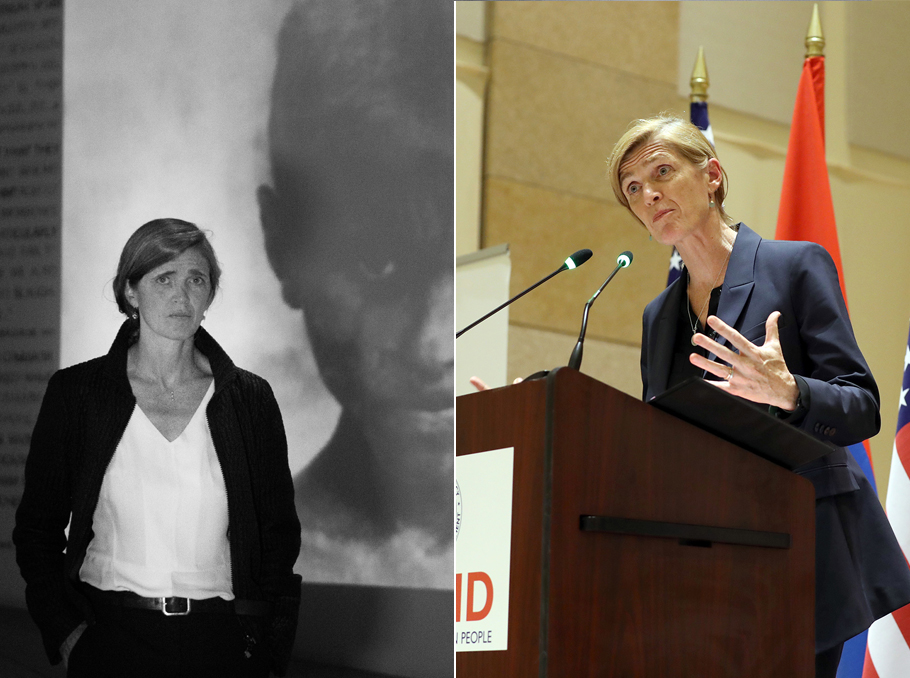
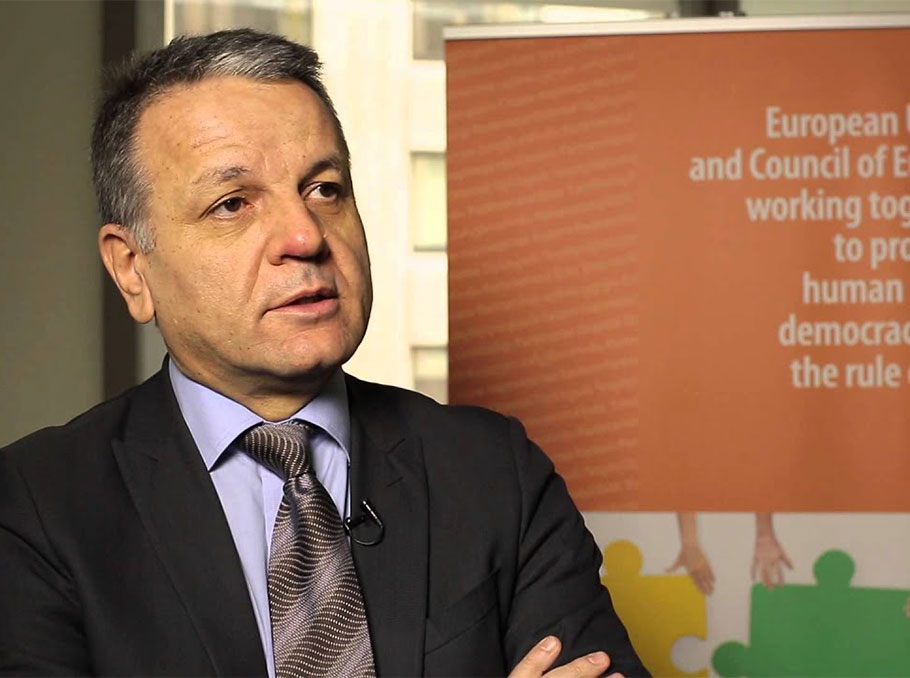





Comments
Dear visitors, You can place your opinion on the material using your Facebook account. Please, be polite and follow our simple rules: you are not allowed to make off - topic comments, place advertisements, use abusive and filthy language. The editorial staff reserves the right to moderate and delete comments in case of breach of the rules.